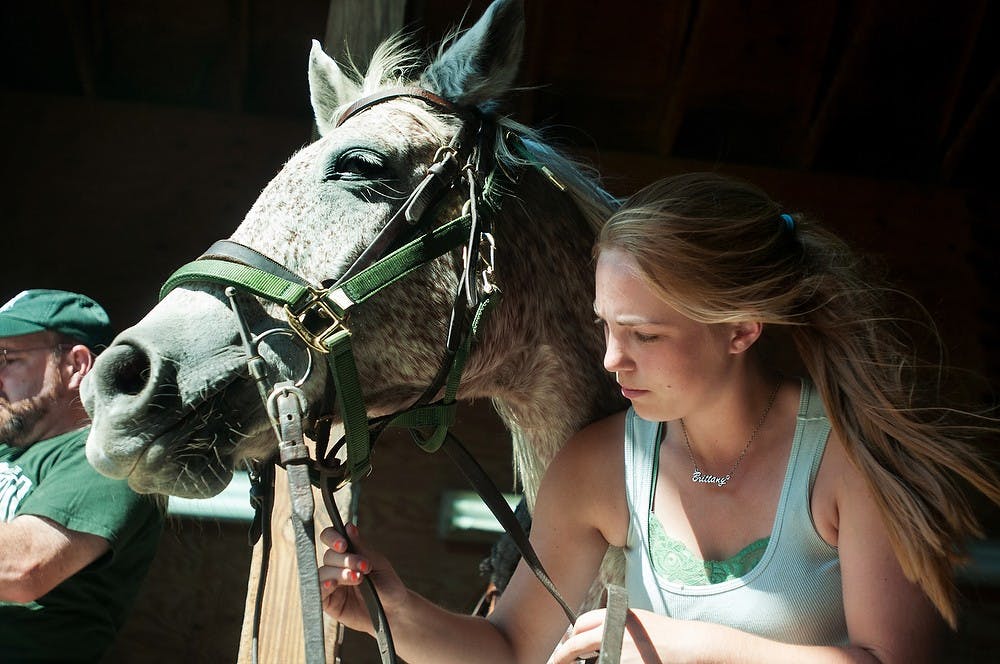West Nile Virus was confirmed in two horses in Ingham and Kent counties, according to the Michigan Department of Agriculture and Rural Development, or MDARD. As of Aug. 29, one human case of West Nile according to the Michigan Department of Community of Health, or MDCH, and five blood donor samples tested positive for the virus.
The Disease Control and Prevention Center identifies West Nile Virus as a mosquito-borne disease that causes flu symptoms in humans and can be fatal.
In humans, most people infected with West Nile don’t develop an illness, but the virus is temporarily present in their blood.
Last year, 202 West Nile human illnesses and 17 fatalities were reported in the state.
“Horses can be sentinel animals for what is going on around us,” said James Averill, Michigan Department of Agriculture and Rural Development State Veterinarian. “If a horse is sick, you can be sure there is a reason to be cautious.”
The infected horses from Kent and Ingham counties were diagnosed post-mortem at the Diagnostic Center for Population and Animal Health, said Steve Bolin, professor of pathobiology and diagnostic investigation.
“When you find West Nile in any species in the state, it means the virus is active,” Bolin said. “Finding it in a county is warning sign that the county has virus activity.”
But it’s important to note the disease can’t be passed from horses to humans, or vice versa, said Paula Hitzler, manager of the MSU Horse Teaching and Research Center.
“It’s just an indicator,” Hitzler said. “Students can take precautions against mosquitoes with insect repellent.”
While some horses across the local counties are experiencing the outbreak of the disease, Hitzler confirmed that the safety of the MSU horses is in good hands, with no sign of West Nile at the research center.
“It really depends on the owner, and not every owner makes the choice to vaccinate,” he said. “Horses at our research center have been vaccinated for West Nile.”
Support student media!
Please consider donating to The State News and help fund the future of journalism.
Discussion
Share and discuss “West Nile Virus found in Ingham County horses” on social media.







